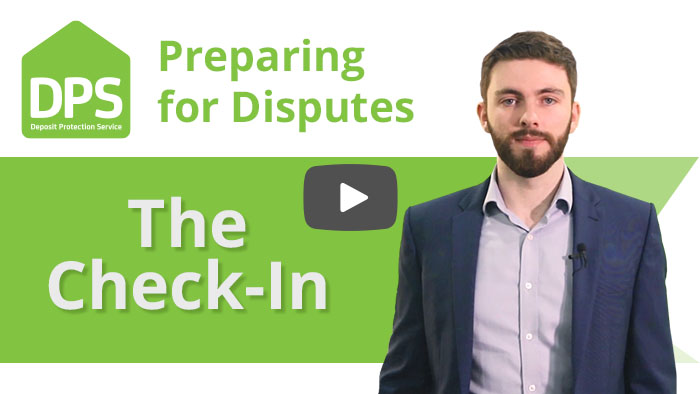Deposit Protection Service
Four things you need to know when starting a new tenancy
26 September 2019 8264 Views

Did you know that preparing for a deposit dispute starts at the beginning of a tenancy?
When tenants and landlords disagree about claims at the end of a tenancy, it enters the dispute resolution process. At that point our team of legally trained adjudicators look over evidence to reach a final decision on how the deposit should be returned.
Our adjudicators have resolved over 89,000 disputes so we’ve asked them what makes the best evidence when entering a dispute. Here’s Christy, from our adjudication team, to tell you how to prepare for disputes by performing a great check-in. Click on the image below to watch the video.
Can’t watch the video? Read our short summary of the tips:
1. Put everything in writing at the start
 |
The check-in report is the most important piece of evidence at this point. It should be made at the very start of a tenancy and list everything that’s already in the property, including the condition of the carpet, walls, furniture and garden. Adjudicators will use this to judge the original property condition in a dispute. |
2. Stick to the facts
 |
Be detailed and thorough but most of all be factual and honest. The report should include facts, including information about the age and condition of items. Adjudicators make their decisions based on evidence - so it’s important that the report is objective. Using a third-party inventory service is an easy way to create a strong, impartial check-in report. |
3. Take Photos
 |
Good quality photos help adjudicators get an accurate view of the condition of the property at check-in. Pictures should be clear and in colour. Make sure they’re date-stamped to prove they were taken on the check-in date. |
4. Get signatures
 |
A check-in report that’s been signed by all parties carries more weight as evidence. It shows that everyone agrees with the description of the property and that it’s not just one person’s opinion. Unsigned reports create doubt for the adjudicator about their accuracy. If you’re a tenant, make sure you read and consider the report before signing it, and take a copy for yourself. |
Following our advice at this early stage will significantly improve your chance of being successful if you find yourself in a deposit dispute at the end of your tenancy. Watch the full video above for a more detailed insight into preparing a great check-in report.
Could you ‘Be the adjudicator’?
Test your dispute knowledge and decision making skills with our interactive ‘Be the adjudicator’ case studies and see if you can reach the right conclusion.
If you wish to protect your deposit with us or just want to know more about tenancy deposit protection and deposit disputes, visit https://www.depositprotection.com/
Previous Articles

Dispute evidence – don’t throw...

Do you have questions about...

Are you open to lets...

Springtime - a great time...




